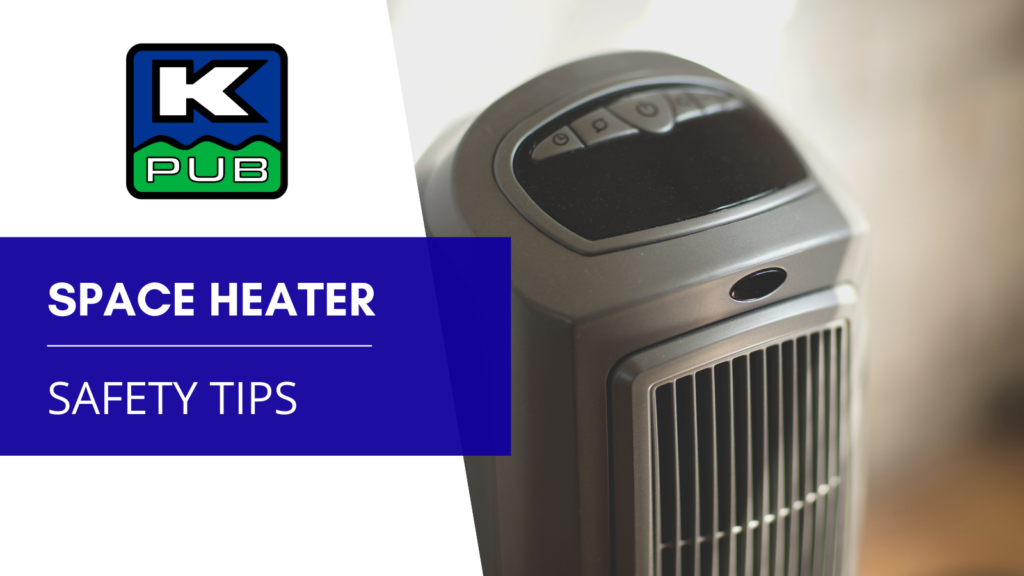
As temperatures drop for the cooler months, space heater use rises, bringing in the need for a refresher on space heater safety. While these devices can be very convenient in heating rooms and small spaces, they can also pose safety hazards if used improperly.
If you have a space heater for your home or are looking into purchasing one, here are 10 safety tips to follow as you make your space comfortable:
1. Look for safety approved space heaters.
When looking for a space heater, you’ll always want to consider those that have safety approval from organizations like the Underwriters Laboratory (UL), Intertek (ETL), or the Canadian Standards Association (CSA). You can rest assured that these products have met certain safety standards to be used in the home.
2. Purchase a space heater with an automatic shut off.
Automatic shut off is great for safety just as much as it is for convenience. Some space heaters will turn off if the product overheats, reducing the potential for a fire. Some will also automatically shut off if the heater is turned over, by a pet or a child. As an additional defense, try to set the heater in an area where it can’t be easily overturned.
3. Keep the space heater at least 3 feet away from flammable objects.
The Consumer Product Safety Commission (CPSC) recommends keeping your space heater at least 3 feet from flammable items like bedding, curtains, furniture, papers, and other items. This includes making sure the front, back, and sides are all this distance from flammable objects to prevent them from heating and catching on fire. According to the NFPA, the main factor behind home fire deaths involved objects being too close, like “upholstered furniture, clothing, mattress, or bedding.”
4. Set your space heater on a level surface.

It’s best to set your space heater on a level and smooth surface like the floor where there’s less risk of it being knocked over and landing on something flammable. Resist placing your space heater on the edge of a desk, a cloth-covered table, or on a rug. If you’re trying to get warm quickly, move closer to the heater instead of placing it in a risky area.
5. Don’t leave the heater unattended.
Similar to stepping away from food while cooking in the kitchen–don’t leave your space heater unattended. Sometimes even the smallest changes go unnoticed until it’s too late. Try to make sure you’re present while the heater is running.
6. Always plug a space heater into the wall—not a power strip.

Never plug a space heater into a power strip as those aren’t designed to handle the energy needed to power the space heater. If you plug the heater into a power strip, the strip could overheat and catch on fire. Wall outlets are designed to handle higher voltage than power strips, making them more appropriate for your heater.
7. Keep doorways and exits clear.
Place your heater in areas that are blocking an exit or doorway so that there is a way of escape, in the event of an emergency. If you need to heat a particular room, try to use a wall outlet within the room instead of placing the space heater at the entry point.
8. Turn off your space heater before going to bed.
Once you’ve gotten warm, it’s easy to forget to turn off your space heater before falling asleep. Try to remember to turn off your heater before going to bed and have a blanket ready to help hold in your body heat. An automatic timer or smart space heater are also alternatives for hands-off timing and shut-off.
9. Don’t place your heater near liquid.
Never place a space heater near water or a source of water, like a sink, shower, or bathtub. This is to prevent the risk of electric shock. Be mindful to avoid placing any mugs, cups, or bowls near your space heater if you have it on a desk to avoid spills.
10. Ensure you have smoke detectors installed outside rooms in your home.

Make sure you have a smoke detector installed outside each room of your home and that they’re properly functioning. The NFPA recommends testing your smoke alarms once each month using the test button and that everyone understands how to respond. Create a home fire escape plan and rehearse it with your family so that everyone is prepared in the event of an emergency.
